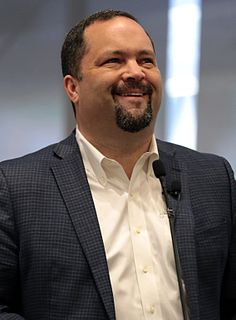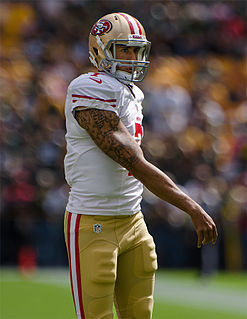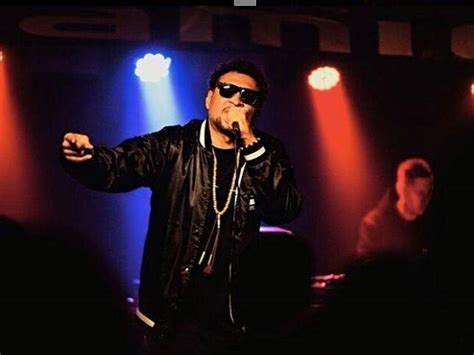A Quote by Michelle Alexander
I have spent years representing victims of racial profiling and police brutality and investigating patterns of drug law enforcement in poor communities of color - and attempting to help people who have been released from prison attempting to 're-enter' into a society that never seemed to have much use to them in the first place.
Quote Topics
Related Quotes
Racial profiling punishes innocent individuals for the past actions of those who look and sound like them. It misdirects crucial resources and undercuts the trust needed between law enforcement and the communities they serve. It has no place in our national discourse, and no place in our nation's police departments.
Most Americans violate drug laws in their lifetime, but the enemy in this war has been racially defined. Not by accident, the drug war has been waged almost exclusively in poor communities of color, even though studies have consistently shown - for decades - the people of color are no more likely to use or sell illegal drugs than whites.
The system functioned relatively automatically, and the prevailing system of racial meanings, identities, and ideologies already seemed natural. Ninety percent of those admitted to prison for drug offenses in many states were Black or Latino, yet the mass incarceration of communities of color was explained in race-neutral terms, an adaptation to the needs and demands of the current political climate.
You're not going to have the police force representing the black and brown community, if they've spent the last 30 years busting every son and daughter and father and mother for every piddling drug offense that they've ever done, thus creating a mistrust in the community. But at the same time, you should be able to talk about abuses of power, and you should be able to talk about police brutality and what, in some cases, is as far as I'm concerned, outright murder and outright loss of justice without the police organization targeting you in the way that they have done me.
Mayor De Blasio's appointment of Bill Bratton as police commissioner is the height of hypocrisy. Asking Bratton to stop racial profiling and stop and frisk is like asking an arsonist to help you put out fires. Bratton along with his partner Giuliani started and supported racial profiling stops. A new progressive mayor? I think not!
To make matters worse, federal drug forfeiture laws allow state and local law enforcement agencies to keep, for their own use, up to 80 percent of the cash, cars, and homes seized from suspected drug offenders. You don't even have to be convicted of a drug offense; if you're just suspected of a drug offense, law enforcement has the right to keep the cash they find on you or in your home, or seize your car if drugs are allegedly found in it or "suspected" of being transported in the vehicle.
Communities do need police, but law enforcement needs to be much more transparent and held accountable for their actions. We also need increased resources for mental health services, affordable housing, education, jobs training, and much more to truly address social and economic issues in our communities.
We need to recognize that the situation in Ferguson speaks to broader challenges that we still face as a nation. The fact is, in too many parts of this country, a deep distrust exists between law enforcement and communities of color. Some of this is the result of the legacy of racial discrimination in this country.

































